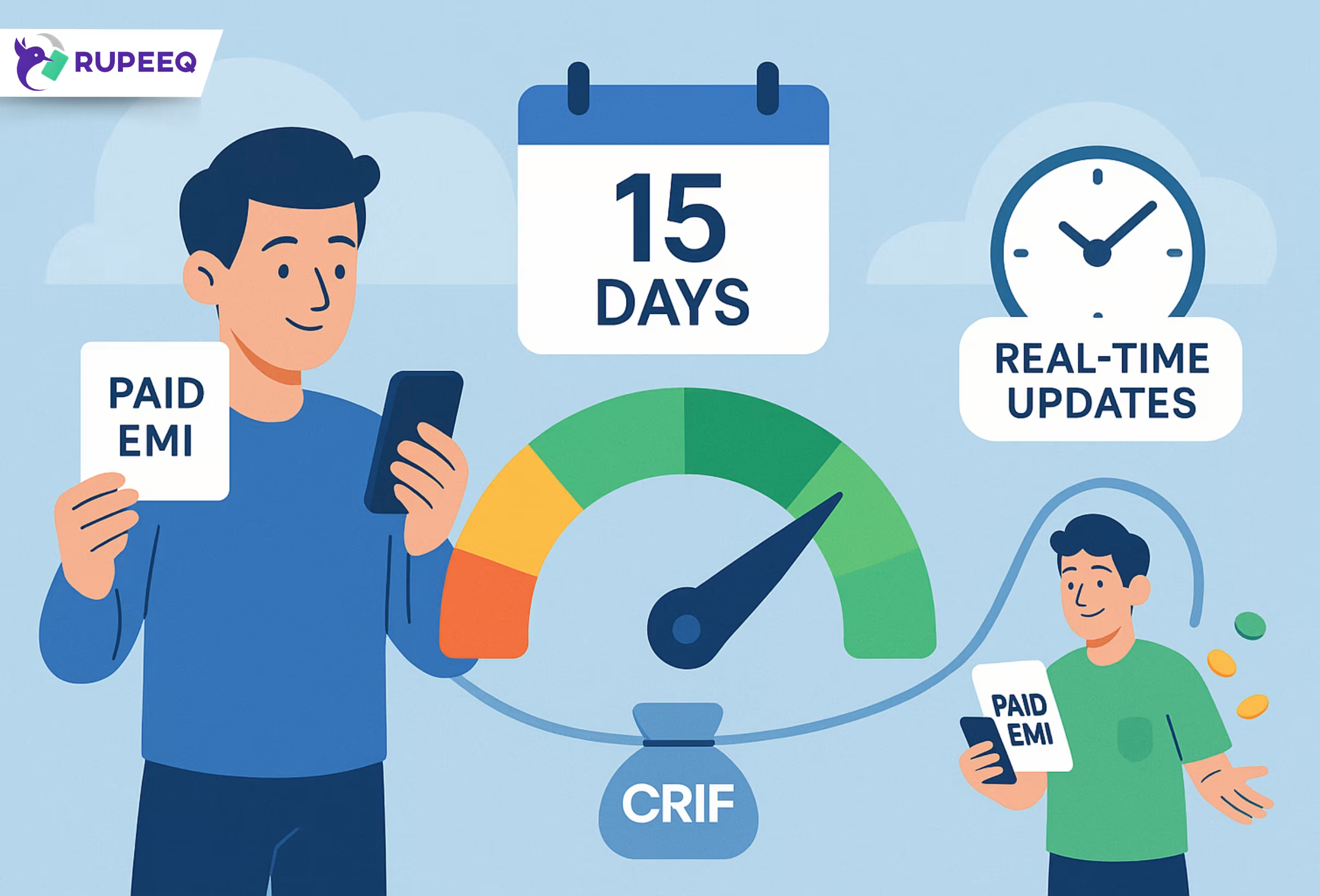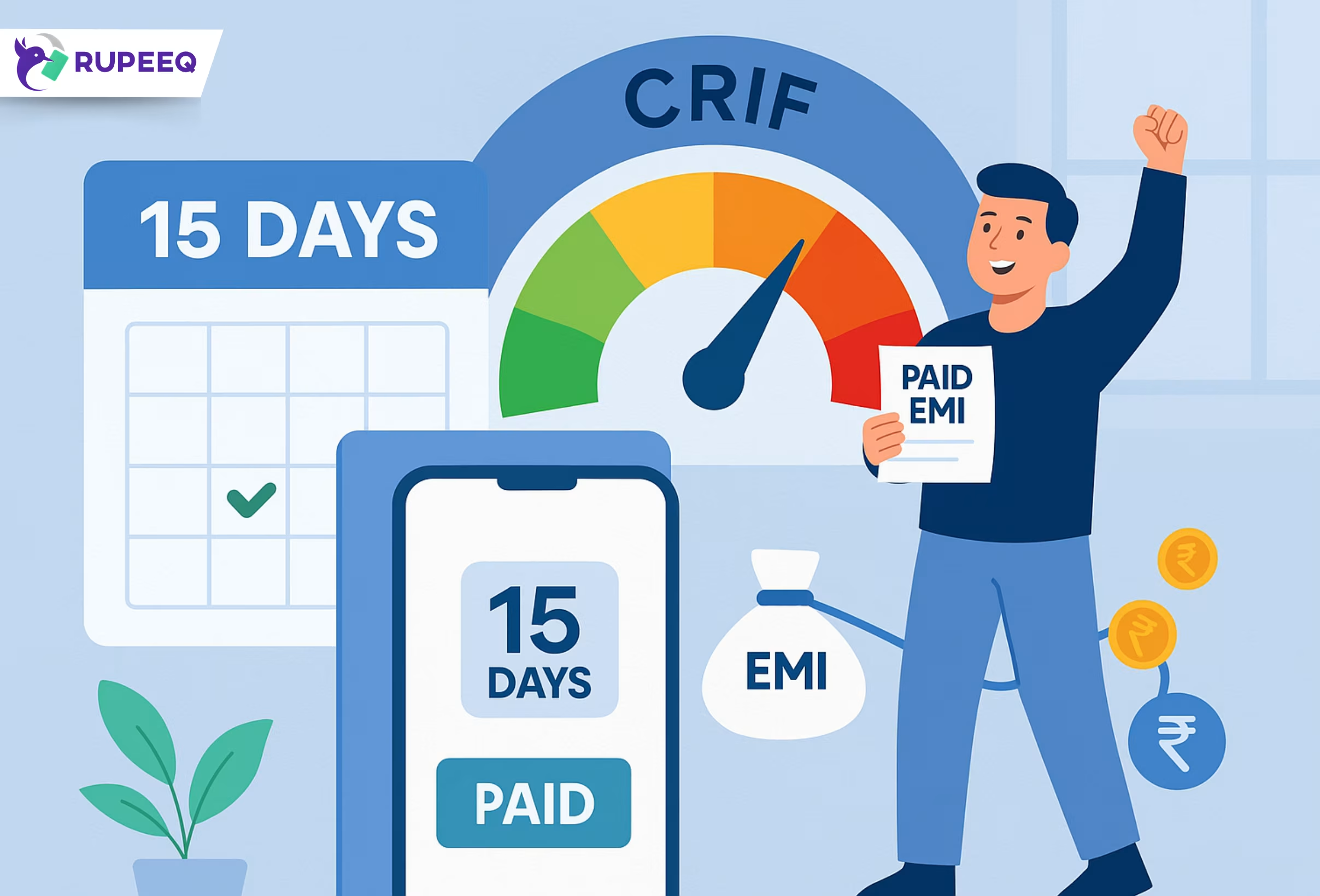Your credit report is a reflection of your financial behavior and plays a crucial role in your ability to secure loans and credit cards. Regularly checking your credit report is an essential habit that helps you stay informed about your credit health, identify potential errors, and take proactive measures to improve your financial standing.
In this blog, we’ll explore why it’s important to check your credit report regularly, how it impacts your financial decisions, and tips to maintain a healthy credit profile.
What is a Credit Report?
A credit report is a detailed record of your credit history, maintained by credit bureaus such as CIBIL, CRIF High Mark, Experian, and Equifax. It contains information about:
- Your credit accounts (credit cards, loans, etc.)
- Payment history (on-time and missed payments)
- Outstanding balances and credit utilization
- Credit inquiries (soft and hard inquiries)
- Defaults or settlements (if any)
RupeeQ Tip: Check your credit report for free using RupeeQ ACE regularly to ensure all information is accurate and up to date.
Why Checking Your Credit Report is Important
Identify Errors and Discrepancies
Errors in your credit report, such as incorrect personal details, unauthorized loans, or duplicate entries, can negatively impact your credit score and loan approval chances.
Example:
Sonia found an old loan incorrectly marked as unpaid in her report. After disputing the error, her score improved by 60 points.
Detect Fraudulent Activity Early
Credit fraud and identity theft are on the rise. Regular monitoring of your credit report can help you detect unauthorized transactions or loan applications made in your name.
Example:
Amit noticed a credit card he never applied for in his report. He reported the fraud immediately and avoided potential financial loss.
Improve Your Credit Score
Monitoring your credit report allows you to track your credit score’s progress and take corrective actions, such as timely payments and reducing credit utilization.
Example:
Rohit set a goal to improve his credit score from 650 to 750 by paying off outstanding debts and keeping utilization low.
Boost Your Loan Approval Chances
Lenders review your credit report before approving loans or credit cards. A clean and accurate report increases your chances of getting approved for financial products at better interest rates.
Example:
Neha regularly checked her report, ensured timely payments, and secured a home loan with a low-interest rate of 7.5%.
RupeeQ Tip: Check your report before applying for a loan to ensure everything is in order.
Avoid Hard Inquiry Rejections
Too many hard inquiries from frequent loan applications can lower your score. Checking your report allows you to plan applications better and avoid unnecessary inquiries.
Example:
Before applying for a car loan, Anuj checked his credit score to verify his eligibility, avoiding unnecessary rejections.
How Often Should You Check Your Credit Report?
Experts recommend reviewing your credit report at least once every quarter to stay informed about your financial health. You should also check your report:
- Before applying for a loan or credit card.
- After clearing off debts to track improvements.
- If you’ve been denied credit unexpectedly.
- If you suspect fraudulent activity.
RupeeQ Tip: Use RupeeQ’s free credit check service to review your report without affecting your score.
How to Check Your Credit Report for Free
You can access your credit report for free through credit bureaus or financial platforms like RupeeQ.
Steps to Check Your Credit Report:
- Visit the RupeeQ website.
- Enter personal details such as PAN, date of birth, and contact information.
- Complete identity verification through OTP authentication.
- Download and review your report for errors or discrepancies.
What to Look for in Your Credit Report?
When reviewing your credit report, pay attention to the following key sections:
- Personal Information: Ensure your name, PAN, and contact details are correct.
- Credit Accounts: Verify outstanding loans, limits, and repayment history.
- Credit Utilization: Ensure your utilization ratio is below 30%.
- Payment History: Check for any missed or delayed payments.
- Credit Inquiries: Review the number of hard inquiries and ensure they match your applications.
RupeeQ Tip: Any incorrect data should be reported to the credit bureau immediately for rectification.
Common Mistakes to Avoid When Checking Your Credit Report
Many people make mistakes while reviewing their credit reports. Here are a few things to avoid:
Ignoring Small Errors: Even minor discrepancies can impact your score.
Not Checking the Report Regularly: Delayed detection of fraud or errors can worsen your financial situation.
Overlooking Old Accounts: Closed accounts should reflect correctly to avoid negative marks.
Applying for Credit Without Checking Your Report: This can lead to unnecessary rejections and score drops.
RupeeQ Tip: Make it a habit to review your credit report every three months to stay financially healthy.
How Regular Credit Monitoring Benefits You
- Prepares You for Future Loans: Ensures you’re ready for major financial decisions like home or car loans.
- Protects Against Identity Theft: Early detection of fraud minimizes damage.
- Helps in Budgeting: Understanding your credit obligations allows better financial planning.
- Improves Financial Discipline: Regular monitoring encourages better financial habits.
Conclusion about Checking Credit Score Regularly
Regularly checking your credit report is a simple yet powerful step toward maintaining financial health. It helps you identify errors, detect fraud, and improve your credit score proactively. By staying informed, you can take control of your financial future and make better borrowing decisions.







